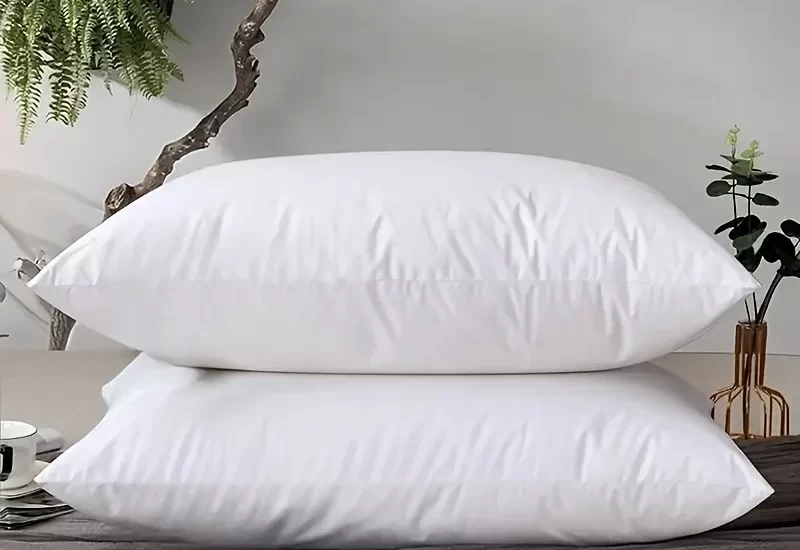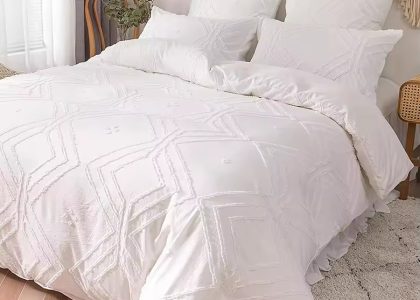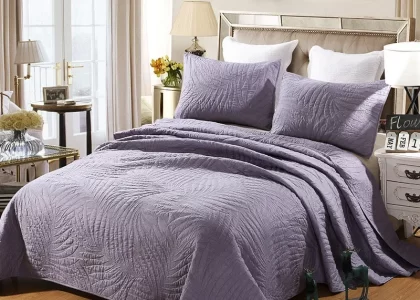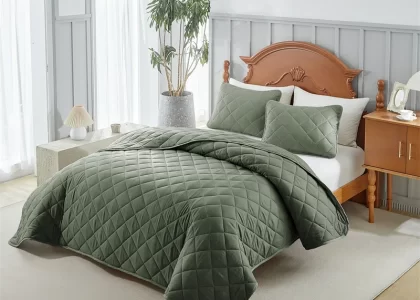Importance of Selecting the Right Pillow
How to choose the right pillow? Selecting the right pillow is key for a good night’s sleep. It’s not just comfort; it’s about health too. The right pillow can enhance sleep quality and protect your neck and back from pain.
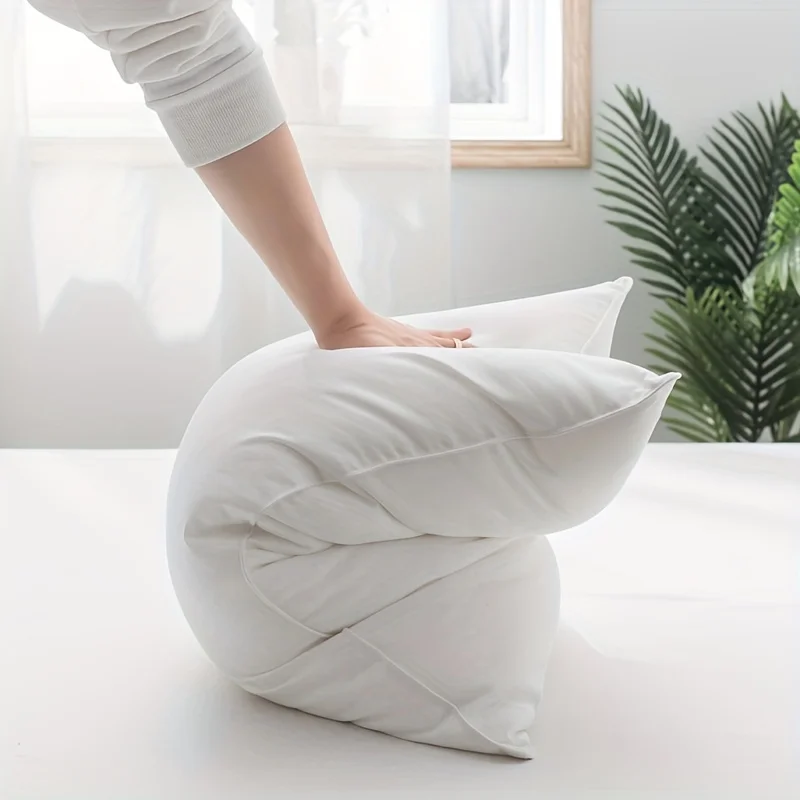
Role in Enhancing Sleep Quality
A good pillow offers more than just a soft place to rest your head. It supports your sleep posture, helping you stay asleep longer. It can also prevent sleep disruptions caused by discomfort.
Contribution to Neck and Back Health
The right pillow keeps your spine aligned. It adjusts to your neck’s natural curve, reducing the risk of waking up with stiffness or pain.
Choosing the right pillow is vital. It complements your mattress and suits your sleeping style. It should feel right under your head and neck. Next, we’ll look at how your sleep position shapes the pillow you need. Understanding these basics will guide you to the ideal pillow choice for better sleep.
Considerations for Choosing the Right Pillow
Choosing the right pillow involves several important factors. Here are some key considerations to guide your selection.
Assessing Your Sleeping Position
Your sleeping position heavily influences the type of pillow you need. Back sleepers generally benefit from medium-thick pillows to maintain spine alignment. Side sleepers might prefer thicker, firmer pillows to keep their neck aligned with their spine. Stomach sleepers often need a softer, lower pillow to avoid neck strain.
Matching Pillow to Mattress Type
The type of mattress you use also affects your pillow choice. If you have a firm mattress, you might need a higher pillow to compensate for less sinkage. Conversely, a softer mattress might require a thinner pillow to prevent your neck from bending upwards.
Importance of Pillow Fill and Material
Pillow fill and the materials used are crucial for comfort and health. Memory foam, for example, molds to your neck’s shape and offers substantial support. Natural fills like down offer softness but may not support the neck as well. Hypoallergenic materials are ideal for allergy sufferers.
Selecting the right pillow improves sleep quality, health, and comfort. Consider your sleep position, mattress type, and preferred materials when choosing your ideal pillow.
Specific Pillow Recommendations
Choosing the right pillow involves considering your sleep position, mattress type, and personal needs. Now, let’s delve into some specific pillow recommendations for different types of sleepers.
Best Pillows for Back Sleepers
If you sleep on your back, aim for a medium-thick pillow. This will ensure your spine stays straight and reduces the risk of neck pain. Memory foam pillows are a solid option, as they conform to the shape of your neck.
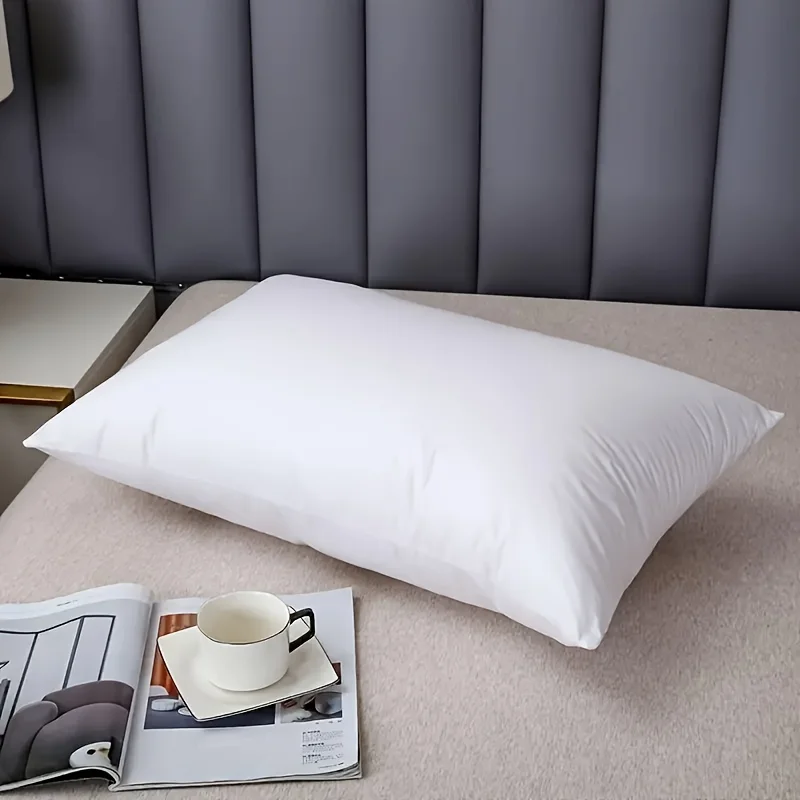
Top Choices for Side Sleepers
Side sleepers should look for a firm, high-loft pillow. It will keep your head level with your spine. Consider a pillow filled with dense memory foam or latex to support your neck properly.
Ideal Options for Stomach Sleepers
Stomach sleepers need a soft, low pillow to prevent bending the neck. Pillows filled with down or down-alternative materials can provide comfort without too much lift.
When selecting a pillow, think about your sleeping habits and what feels most comfortable for you. For instance, back sleepers who often shift to their side may benefit from a pillow that’s not too firm. Side sleepers with broader shoulders might need a higher pillow to fill the gap between their head and the mattress. Stomach sleepers often need the thinnest pillow to keep their spine as level as possible.
Consider these recommendations as starting points, and choose a pillow that feels right for you. Remember, regular pillow maintenance and timely replacement can enhance your sleep quality and protect your health.
Additional Factors Influencing Pillow Choice
Selecting the perfect pillow also depends on some additional factors. Here, we cover essential aspects that can impact your decision.
Effect of Body Type and Sleep Movement
Your body type and the way you move in sleep matter. A hefty build may need a stout, high-loft pillow. Active sleepers require a durable pillow that can withstand movement.
Impact of Personal Comfort Preferences
Comfort preferences are personal. Some like a squishy pillow, others a firm one. Choose what feels best to you. It’s about what gives you rest and ease.
Importance of Pillow Maintenance and Lifespan
Pillows don’t last forever. They need care to maintain their shape and hygiene. A well-maintained pillow can give you years of restful sleep before needing replacement.
These factors are vital to get a pillow that not only supports your sleep position but also caters to your unique needs. Keep them in mind when shopping for a pillow.
Tips for Maintaining and Replacing Your Pillow
Pillows play a big role in ensuring a restful sleep. Keeping your pillow in good condition is just as vital as choosing the right one. Here are some practical tips for pillow maintenance and knowing when to replace it.
Identifying the Right Time to Replace
You should consider getting a new pillow if it’s no longer supportive or has visible signs of wear. If it has lumps, permanent stains, or an odor, it’s time for a change. A pillow’s lifespan usually ranges from one to two years. Remember to check your pillow regularly for signs that it’s time to replace it.
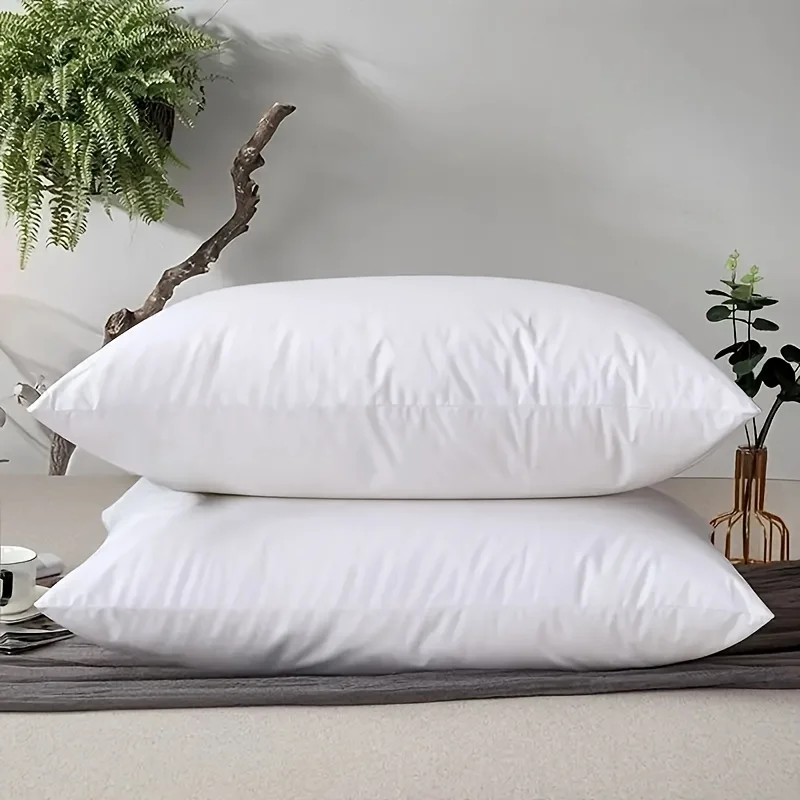
Care and Cleaning Tips
To prolong your pillow’s life, follow proper care instructions. Many pillows are machine washable. Wash them as directed, usually on a gentle cycle with mild detergent. For those that are not, spot cleaning is the way to go. Make sure to dry your pillow completely before using it again to prevent mold and dust mites. Using pillow protectors can also extend a pillow’s cleanliness and longevity.
Enhancing Your Sleep Environment
Your pillow is just one part of your sleep environment. For the best sleep quality, combine a good pillow with suitable bedding elements. Choose sheets, comforters, and mattress covers that complement your pillow in terms of comfort and support. Adjust your bedroom conditions, like lighting and temperature, to improve sleep quality. A cool, dark, and quiet bedroom is often considered ideal for sleep. By maintaining your pillow and creating a cozy bedroom setting, you can enjoy a deeper and more refreshing night’s rest.
Enhancing Your Sleep Environment
Enhancing your sleep environment is crucial for a restful night. A comfortable and supportive sleep environment combines several elements that influence sleep quality. Here’s how you can improve it:
Combining Pillows with Other Bedding Elements
Choose sheets, comforters, and mattress covers that complement your pillow. These should be comfortable and supportive. Use breathable and soft materials to enhance sleep comfort. Opt for hypoallergenic fabrics if you have allergies.
Adjusting Bedroom Conditions for Optimal Sleep
Keep your bedroom cool, dark, and quiet. Use blackout curtains, earplugs, or a white noise machine if necessary. Make sure your mattress and bedding are comfortable. Adjust your room temperature to between 60 to 67 degrees Fahrenheit. Good sleep hygiene, like going to bed at the same time each night, also helps.
By paying attention to these details, you can tremendously improve the quality of your sleep.
Conclusion: Finding Your Ideal Pillow
Choosing the right pillow is crucial for achieving a peaceful night’s sleep. By understanding your sleep position, exploring materials, considering personal preferences, and maintaining your pillow, you can find the ideal cushion that supports your unique sleep style. Keep in mind that it may take some experimenting to find the perfect pillow for your needs. Ultimately, investing in a quality pillow can lead to more restful sleep and better overall health, making it well worth the effort. Happy sleeping!

